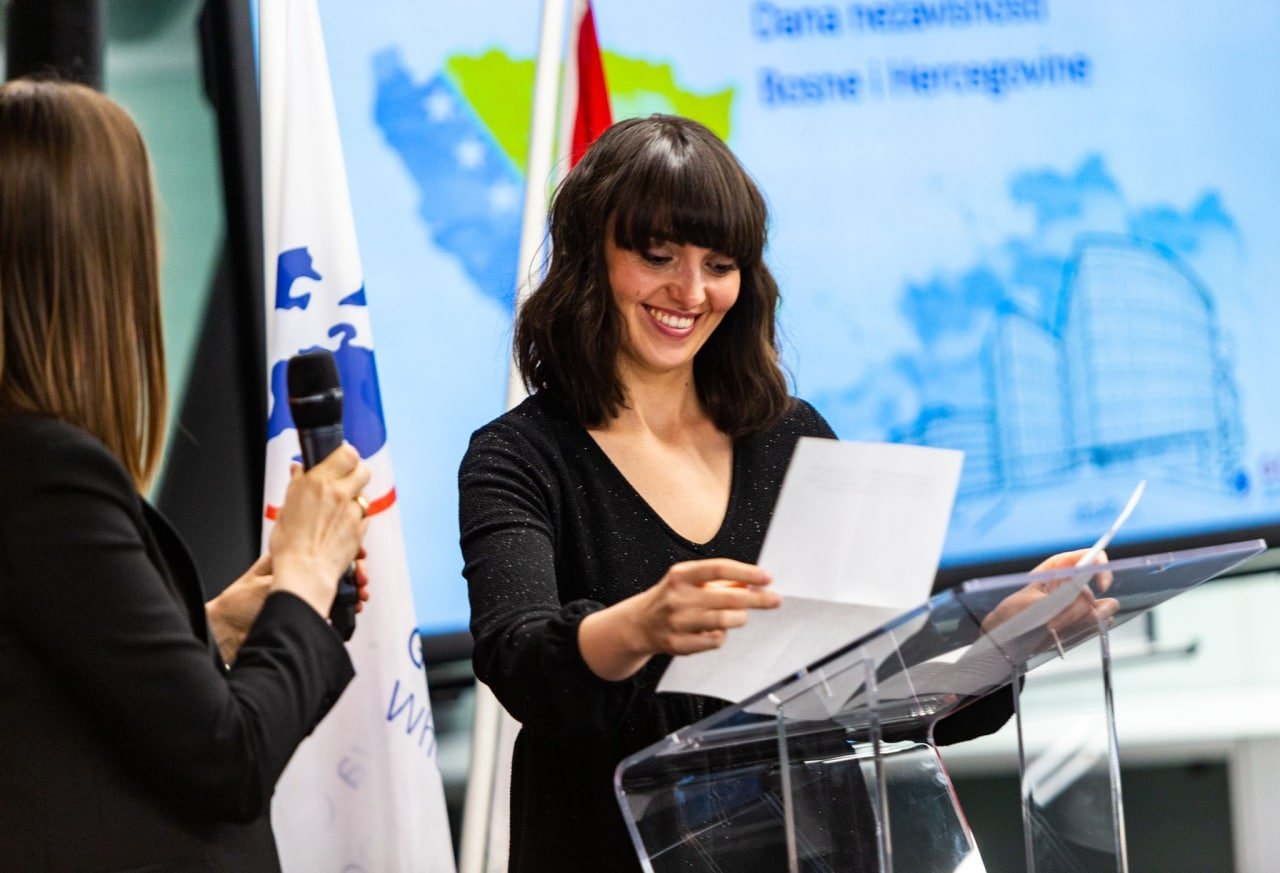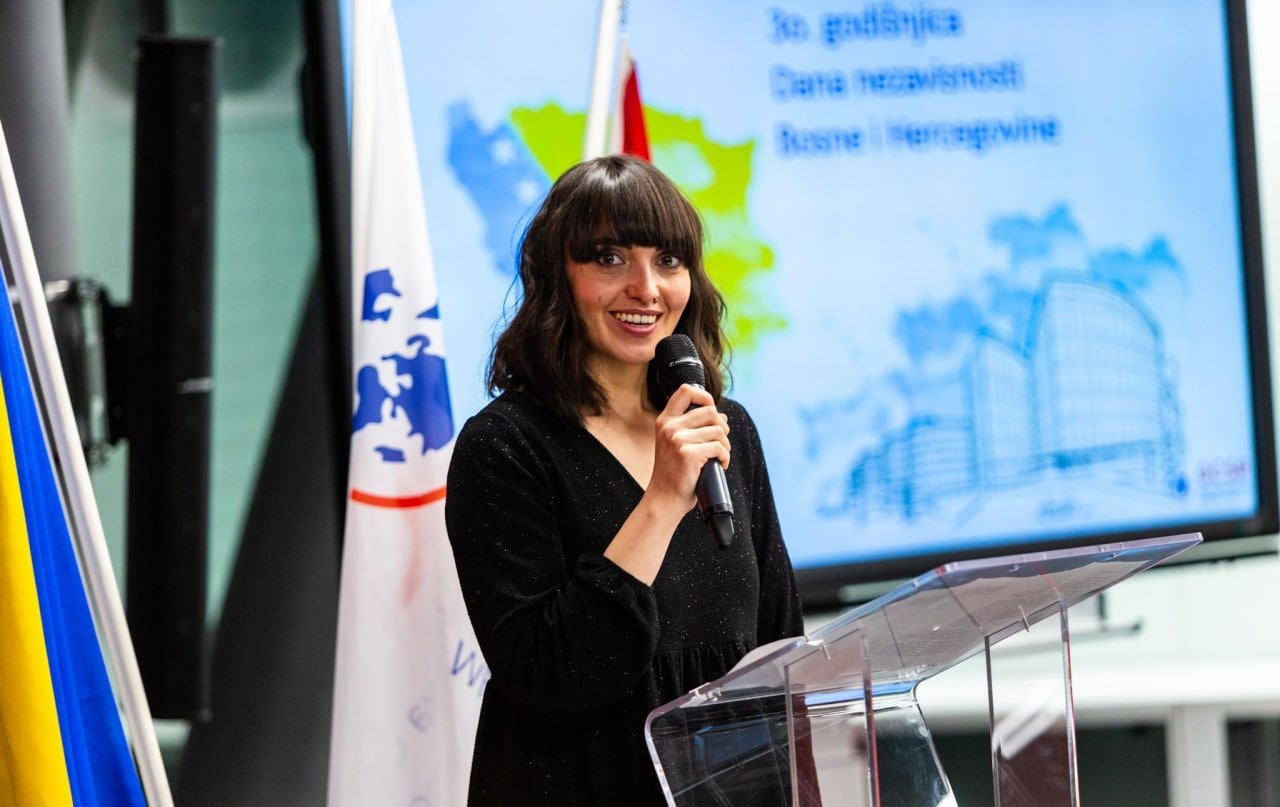Mirela Mujić, Bosnian and Herzegovinian in Switzerland: Using the Bosnian language is most important for preserving BiH's identity
"I have an extremely positive attitude about BiH and life in it, and that is something I want to preserve," Mirela said.
Upon arriving in Switzerland, she had no difficulty mastering a new language at school, and even managed to “preserve” her native language through conversation within the family. Today, Mirela is a teacher of English and French in Switzerland and is currently conducting research at the Faculty of Education in Biel / Bienne on the Bosnian language in the canton of Neuchâtel, focusing on the second generation of immigrants from Bosnia and Herzegovina.
"We work mostly with the second generation, that is, with parents who came here with their parents and speak Bosnian. However here they went through their entire schooling. They are all very attached to Bosnia and Herzegovina, the Bosnian language, culture and back travel because it is still an important part of their personal identity. However, things change with the third generation. The third generation is losing touch with the Bosnian language, considering that their parents managed to learn French and German in order to teach their children basic vocabulary, while losing the need to learn Bosnian. They were born here, they have nothing to do with BiH and studies show that with that third generation, BiH is lost ", Mirela explained to us.

As part of her linguistic career, Mirela teaches Bosnian language classes at the Neuchâtel for children, but notes that these children are considered more Swiss than Bosnians and Herzegovinians. On her return to Switzerland, at the age of fourteen, Mirela visited a mosque, which she used to network and connect with young people from Bosnia and Herzegovina.
"Through conversations with my peers, I realized that in the mosque we do not speak Bosnian but French, which was strange to me. Then I started learning Latin in college and compared it to French, Bosnian and English. There I got the desire to show the children all these differences and similarities because, until they learn the Bosnian language, they will not be able to fully understand French. Even research says you have to learn your native language first to be able to learn foreign languages. There I said to myself, okay, if we want our children in Switzerland to progress intellectually and linguistically then they have to understand Bosnian grammar. They hear the Bosnian language every day, but they also need to get that knowledge from an academic point of view, and that's how it all started. We started, as part of the BeBosnian association, the first grades within the school program in January this year ", adds Mirela.
In addition to Neuchâtel, Bosnian language classes in Switzerland have been organized in Zurich, Lucerne, Yverdon and Zion. Statistics from Mirela's research show that the canton of Neuchâtel has about 1,000 inhabitants originally from Bosnia and Herzegovina, but this figure does not include children, ie children born in Switzerland with Swiss citizenship to parents who are from BiH. Therefore, the number of enrolled in Bosnian language classes is not large and, for now, Mirela has only twenty students. "The first reason for this," says Mirela, "is that parents are so integrated into the Swiss way of life that they don't have time to teach Bosnian." Children go to football, to music school, they often have other, daily activities, which is why they 'can't' dedicate time to Bosnian language classes. ” The second factor is perhaps even more worrying because, as Mirela states, children cannot learn a language if the parents themselves do not know the language well enough. This is another reason why the Bosnian language is slowly being lost in the BiH community in Switzerland. In addition to the already mentioned research observations, another fact is that there is not much research on the native language in general.
What Mirela wants to focus on is the view and attitude of parents on the current state of knowledge of the Bosnian language of their children. "The Bosnian language is very important for our identity and we must not lose it. Integration has a strong impact on losing that and we need to deal with it. However, in different ways we can contribute to maintaining our identity while in the diaspora, such as choosing a vacation in BiH, instead of vacationing in, for example, France. As part of the Be Bosnian association, we also organized a recent collection of hair donations for the Heart for Children, where we sent a couple of copies. So, donations and helping Bosnia and Herzegovina are very helpful, but maintaining the Bosnian language is definitely the most important thing in maintaining BiH's identity. "
According to Mujić, something that is also worth mentioning is the fact that life abroad is not the most ideal. Mirela emphasizes that people in Switzerland are "individualists" and that the very fact that she does not know her neighbors supports the harsh reality of social life abroad. "In BiH, I have a feeling, we are much more united and we want to know each other and socialize," said Mirela, adding that "although Switzerland has a more financially stable society, it lacks the human warmth of Bosnia and Herzegovina."
Become a member of our network!
Note: Copying parts or the entire text is allowed with the obligatory citation of the source.

